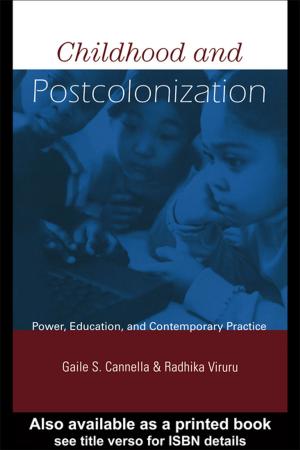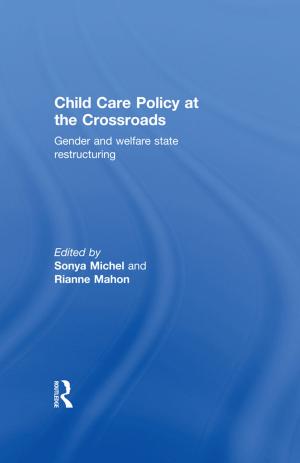| Author: | Donald G. Ellis | ISBN: | 9781135676421 |
| Publisher: | Taylor and Francis | Publication: | August 1, 1999 |
| Imprint: | Routledge | Language: | English |
| Author: | Donald G. Ellis |
| ISBN: | 9781135676421 |
| Publisher: | Taylor and Francis |
| Publication: | August 1, 1999 |
| Imprint: | Routledge |
| Language: | English |
From Language to Communication focuses on the structure of texts and on the social and psychological aspects of language. Utilizing current thinking and research, this volume provides an overview of issues in linguistics, sociolinguistics, cognition, pragmatics, discourse, and semantics as they coalesce to create the communicative experience.
As a unique examination of the relationship between language and communication, key features of the second edition include:
* material on the biological bases of language,
* models of the mind and information processing,
* discussions of semantics and the creation of new words,
* conversation analysis with practical applications, and
* a chapter on sociolinguistics, including language and groups, dialects, and personal styles.
Designed as an introduction to language and communication study, this text is appropriate for use in undergraduate and graduate courses in discourse and related courses in language, meaning, and messages. It also makes an excellent companion volume for courses in theory or interpersonal communication.
ADDITIONAL COPY FOR MAILER
More readable and practical than its predecessor, this second edition contains major additions:
* A more general introduction to language and communication, including new material on the biological bases of language as well as a table of species comparisons and brain comparisons.
* New models of the mind and how you process information, including more on the role of short and long term memory. It also includes a section on the features of messages that aid in comprehension--in other words, how people use the messages of another to build meaning and comprehension.
* A new section on semantics, new words and how they come about, and a more interesting treatment of meaning and how it works. The section on new words details the many ways that new words come into being. The examples are interesting and engaging for the student.
* A new focus on pragmatics with a major new section on conversation analysis which includes very practical ways to apply the principles with numerous examples.
* A new chapter on sociolinguistics includes material on language and groups (including gender, African-American English, and social class) dialects, personal styles, and related issues.
From Language to Communication focuses on the structure of texts and on the social and psychological aspects of language. Utilizing current thinking and research, this volume provides an overview of issues in linguistics, sociolinguistics, cognition, pragmatics, discourse, and semantics as they coalesce to create the communicative experience.
As a unique examination of the relationship between language and communication, key features of the second edition include:
* material on the biological bases of language,
* models of the mind and information processing,
* discussions of semantics and the creation of new words,
* conversation analysis with practical applications, and
* a chapter on sociolinguistics, including language and groups, dialects, and personal styles.
Designed as an introduction to language and communication study, this text is appropriate for use in undergraduate and graduate courses in discourse and related courses in language, meaning, and messages. It also makes an excellent companion volume for courses in theory or interpersonal communication.
ADDITIONAL COPY FOR MAILER
More readable and practical than its predecessor, this second edition contains major additions:
* A more general introduction to language and communication, including new material on the biological bases of language as well as a table of species comparisons and brain comparisons.
* New models of the mind and how you process information, including more on the role of short and long term memory. It also includes a section on the features of messages that aid in comprehension--in other words, how people use the messages of another to build meaning and comprehension.
* A new section on semantics, new words and how they come about, and a more interesting treatment of meaning and how it works. The section on new words details the many ways that new words come into being. The examples are interesting and engaging for the student.
* A new focus on pragmatics with a major new section on conversation analysis which includes very practical ways to apply the principles with numerous examples.
* A new chapter on sociolinguistics includes material on language and groups (including gender, African-American English, and social class) dialects, personal styles, and related issues.















